TEAM MEMBERS
Zuzanna Kołodziejska−Smagała – Principal Investigator
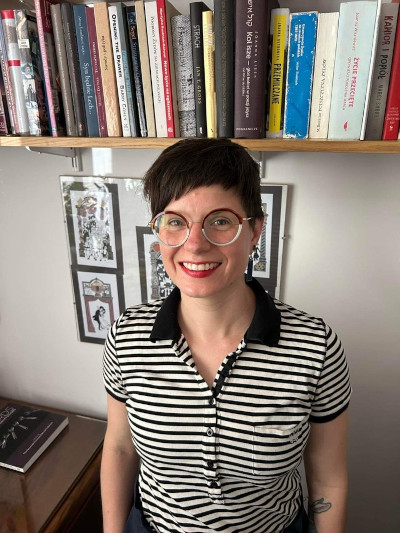
She is a literary historian. Her interests are focused on nineteenth-century Polish-Jewish literature and press; she is interested in cultural borderlines, early feminism, corporeality, perception of gender roles and non-obvious relations between Jewish and non-Jewish social actors in the late nineteenth and early twentieth centuries.
She received her PhD degree in Polish Philology from the University of Warsaw, Faculty of Polish Studies in 2013. Her doctoral dissertation was a monograph of a Polish-Jewish weekly Izraelita, which was published in Polish in 2014 as Izraelita’ 1866-1915. Cultural and Literary Impact of the Weekly. She also holds MA diploma in English Philology, awarded by the University of Warsaw in 2009.
She was a principal investigator of a couple of projects on Polish-Jewish cultural borderland. At the Jagiellonian University she ran a project on Polish-Jewish Literature 1861-1918, which resulted in two books in Polish: an anthology of texts (Polish-Jewish Literature 1861-1918. Anthology, Krakow 2017) and a study on various themes characteristic for the Polish-Jewish literature of the analysed period (Polish-Jewish Literature 1861-1918. Studies and Sketches, Krakow 2018). Then, at the University of Warsaw, she led a project on Polish-Jewish female discourses on body and sexuality between 1890 and 1918, which resulted in peer-reviewed articles and the current project.
In the project Discourses on Body in Jewish Culture in the Polish Lands between 1880 and 1939 funded by the NCN and done in the Taube Department of Jewish Studies, University of Wroclaw, she will examine discourses on body in literary texts, press and ego-documents written in Polish by Jews identifying themselves with the Jewish culture. Because the nineteenth-century part she did in her previous project, currently she will be focused on documents written between 1918 and 1939.
Faculty website: https://judaistyka.uni.wroc.pl/zuzanna-kolodziejska-smagala/
ORCID: https://orcid.org/my-orcid?orcid=0000-0002-2119-7549
Academia edu: https://wroc.academia.edu/ZuzannaKo%C5%82odziejskaSmaga%C5%82a
Joanna Degler (Lisek)

Professor of the University of Wroclaw, literary scholar, translator, and a staff member of the Taube Department of Jewish Studies, University of Wroclaw, but also a literary manager in Teatr Polski (Polish Theatre) in Wroclaw. Her field of expertise is Jewish poetry and Yiddish culture with a special focus on women’s literary works. She authored such monographs as Jung Wilne – żydowska grupa artystyczna [Jung Vilne – a Jewish artistic group]; and Kol isze - głos kobiet w poezji jidysz (od XVI w. do 1939 r.) [Kol-Ishe. The Voice of Women in Yiddish Poetry (from the 16th Century to 1939)]. She is also a co-author of Literatura autobiograficzna Żydów polskich [Autobiographical Literature of Polish Jews], as well as an editor of Nieme dusze? Kobiety w kulturze jidysz [Muted souls? – Women in Yiddish Culture], and Mykwa – rytuał i historia [Mikvah – Ritual and History]. Together with Karolina Szymaniak and Bella Szwarcman-Czarnota she composed an anthology Moja dzika koza. Antologia poetek jidysz [My Wild Goat. An Anthology of Women Yiddish Writers]. Apart from the works of Yiddish poetesses, she translated into Polish works by Chaim Grade, Abraham Sutzkever, Pua Rakovsky, Jenta Surdacka and Chava Rosenfarb. Since 2017 she has been an editor of a series Żydzi. Polska. Autobiografia [Jews. Poland. Autobiography].
In the project Discourses on Body in Jewish Culture in the Polish Lands between 1880 and 1939, funded by the National Science Centre (Poland) and done in the Taube Department of Jewish Studies, she is a tutor of a PhD student – Justyna Lisak, and a co-investigator of Yiddish sources.
Department website: https://judaistyka.en.uni.wroc.pl/department-of-jewish-studies/people/faculty-and-staff/joanna-lisek/
Academia edu: https://wroc.academia.edu/JoannaLisek
Binyamin Hunyadi
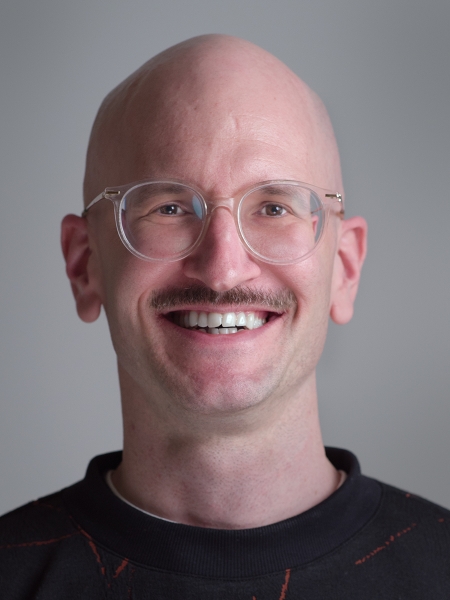
Binyamin Hunyadi received his PhD from the Hebrew University of Jerusalem, where he completed a dissertation on The Yiddish Anarchist Press and Literature, 1890–1918. Hunyadi’s work has appeared in English, Hebrew, Hungarian, and Yiddish in academic journals and edited volumes. In 2017, he edited and translated into Hungarian the most comprehensive collection to date of Zalmen Gradowski’s writings, composed as a member of the so-called Sonderkommando in Auschwitz (The Scroll of Auschwitz – In the Heart of Hell), as well as Avigdor Hameiri’s picaresque novel recounting his experiences as a prisoner of war during the First World War (In the Deepest Hell). Most recently, his article on Volf Tambur, a key figure in Yiddish cultural life under Ceaușescu’s Romania, was published in Socialist Yiddishlands: Language Politics and Transnational Entanglements between 1941 and 1991 (2024), a groundbreaking volume on Yiddish creativity behind the Iron Curtain. Hunyadi’s literary translations have likewise been published in English, Hebrew, and Hungarian. He has also worked as an archivist at the National Library of Israel and as a research assistant for the Index to Yiddish Periodicals (IYP) Project, a joint initiative of Beit Sholem Aleichem and the National Library of Israel.
As part of the NCN-funded project Discourses on the Body in Jewish Culture in the Polish Lands between 1880 and 1939, based at the Taube Department of Jewish Studies, University of Wrocław, he examines various aspects of Hebrew and Yiddish literary and cultural history. His research pays particular attention to the emergence of a Jewish ultra-Orthodox Öffentlichkeit (public sphere) and to the transnational dynamics surrounding the appearance and domestication of the concept of fraye libe ("free love").
Karol Jóźwiak
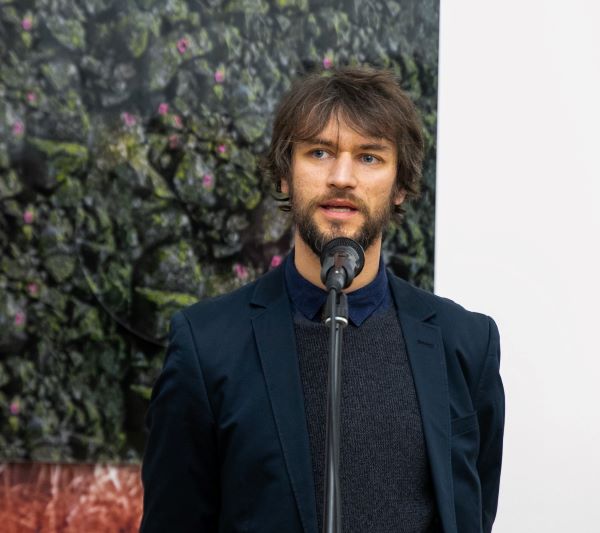
Researcher in art history and culture studies, focusing on selected phenomena in XX century visual culture. He develops the research in three principal directions: exegesis of art-based culture theories (monograph book on Pier Paolo Pasolini’s concept of the Language of Reality, published in Polish in 2019 by Polish Academy of Sciences); historically, biographically and socially oriented research on artists (e.g. articles on Zofia Rydet, Stefan Themerson, Andrzej Różycki, Michał Waszyński); phenomena of Central-East European culture in transnational perspective. In 2019-2024 he was a principal investigator of the research project „Philosovietism in post-fascist Italian film culture”, researching problems of cultural diplomacy between Italy and European countries of the soviet bloc during the Cold War (resulting in a series of articles discussing the impact of the political refugees from Central-East Europe on Italian film culture). Parallel to his research activity he works as art curator and animator (founder of Andrzej Różycki Photosophic Archive, curator of over dozen of exhibitions in Poland and abroad).
Within the Discourses on Body in Jewish Culture in the Polish Lands between 1880 and 1939 project, he researches Jewish visual culture (film, photography, visual arts, vernacular culture, press), understood as an autonomous language that facilitates discourses on the body.
Mariusz Kałczewiak (lipiec 2024 - lipiec 2025)
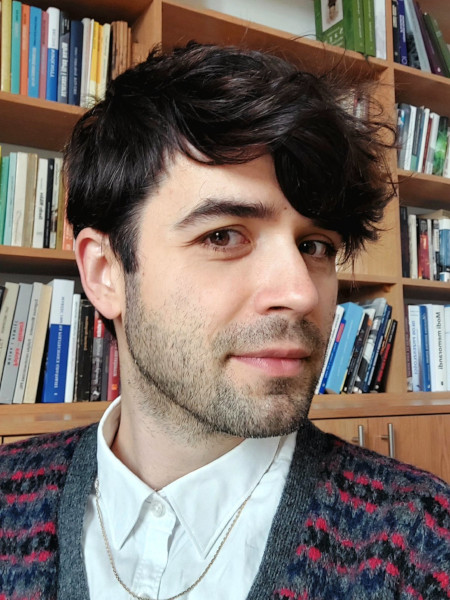
Mariusz Kalczewiak is a historian of Modern Jewish History. His research focuses on modern Jewish history in Eastern Europe and the Americas, historical Migration Studies and historical Gender Studies. Mariusz was an affiliated researcher at the University of Southern California in Los Angeles and worked at universities in Poland and Germany. Mariusz holds PhD in history from Tel Aviv University (2017) and MA from the University of Warsaw (2011).
Mariusz’s first book Polacos in Argentina. Polish Jews, Interwar Migration, and the Emergence of Transatlantic Jewish Culture explored the meanings of trans-Atlantic social and cultural links between the Jewish communities in Poland and Argentina. His second book Man of Valor and Anxiety. Polish-Jewish Masculinities and the Challenge of Modernity analyzes Polish-Jewish masculinities in the early twentieth century. Men of Valor and Anxiety looks at how between a yeshiva and army barracks Polish-Jewish men related to diverse masculine ideals, making an argument that local Jews rarely internalized the idea of Jewish masculine subordination.
Mariusz joins the Discourses on Body in Jewish Culture in the Polish Lands between 1880 and 1939 team to research Jewish discourses about male bodies and how these discourses intersected with ideas about male gender identities. Mariusz research will include Jewish press in Yiddish, Polish, and Hebrew, memoirs and diaries, pamphlets and sources produced by Jewish organizations, and institutions.
Anna Kałużna

A sociologist, Yiddishist and an expert in Jewish culture. Her academic interests are focused around everyday life of the Jewish community in Poland after WWII. She is interested in Jewish press published in Yiddish and in Polish; as well as in microhistory, Yiddish literature, Jewish theatre, and a contact zone between politics, culture and society.
She received her PhD degree in Jewish studies at the Faculty of Letters University of Wroclaw in 2015. Her dissertation was focused on Lower Silesian Jewish Theatre between 1945-1968. It was the first dissertation about post-war Jewish theatre that used Jewish sources, especially those in Yiddish, and analysed them to describe a phenomenon of the Jewish theatre after 1945 in Poland and its importance. It was a considerable phenomenon not only for the Jewish community, but also for the state politics.
She is a teacher of Yiddish at the Taube Department of Jewish Studies at the University of Wroclaw. She was a co-investigator of such projects as: Jews, Poland, Autobiography; Yerusha Poland; The Last Polish Shtetl? The Jews of Dzierżoniów in a Local and Transnational Perspective, 1945-1950; Two Enlightenments. Poles, Jews and Their Roads to Modernity; My Story; English Missions in the Polish Lands; Hassidism: Key Questions.
She also co-authored the following translations: They Were Burning with Rage. Autobiography of a Young Jew – a memoir by Benjamin R.; Hassidic stories about Sara Schenirer. The latter soon will be published by Ossolineum Publishing House.
In the project Discourses on Body in Jewish Culture in the Polish Lands between 1880 and 1939, funded by the National Science Centre, Poland and done in the Taube Department of Jewish Studies, University of Wroclaw she will be analysing discourses on body in literary texts, press articles, and ego-documents written in Yiddish and in Polish by Jews identifying themselves with the Jewish culture.
Department website: https://judaistyka.uni.wroc.pl/katedra-judaistyki/zespol/pracownicy/anna-kaluzna/
Justyna Lisak
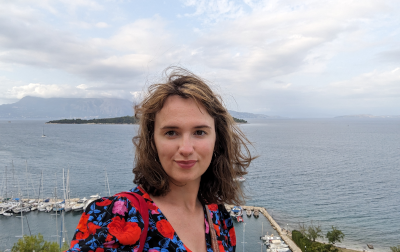
A graduate of German Philology and Jewish Studies at the University of Wroclaw. Her doctoral dissertation, supervised by professor Anna Degler and entitled An Image of Body and Corporeality in Jewish Press and Literature Published in the Territories of German and Austrian Partitions between 1880 and 1918, will be a part of the project. Justyna is responsible for the German part of the project on discourses on body in the Jewish culture.
Since 2020 she has been a moderator of Berlin-Wroclaw “Kulturzug” (a train to culture), a Polish-German project on cultural collaboration. Since 2022 in the frame of the project she has been running Yiddish workshops for German passengers travelling to Wroclaw. At the workshops its participants discover numerous similarities between Yiddish and German as well as between Yiddish and Polish. Through the lingual similarities they also discover centuries-old transcultural relations between German, Jewish and Polish cultures
Since 2017, she has worked also as a Wroclaw tourist guide for groups and individuals. She shows them the old Jewish quarter and the old Jewish cemetery on Slezna Street.
Between July and November 2015 she was a fellow of the Erasmus + program in the archives of the Foundation Neue Synagoge Berlin – Judaicum Centre in the German capital.
Agnieszka Łętowska
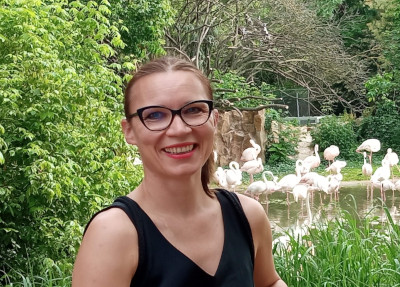
Computational linguist, specialist in NLP (Natural Language Processing) and ML (Machine Learning). Her experience includes creating representations of domain knowledge, creating models (symbolic and vector) of objects, machine learning and NLP operations. She develops applications that acquire and classify knowledge from various sources.
Developer of web applications, NLP and ML modules and databases for research and development projects, including: The science of language evolution: the state of the art and significance to language sciences, Nicolaus Copernicus University in Toruń, Reconstruction and analysis of medicinal preparations identified from Old Polish era (16th - 18th century) egodocuments, UWr, Editing and analysis of wills of the nobility of the Red Ruthenia andcreation of a website on wills of the Crown nobility from the 17th century, UWr.
She participated in the implementation of the projects Leopoldina.pl - a platform for integrating and sharing UWr'sdigital resources for science, education and popularization of knowledge, UWr, Artificial Intelligence System correlating employee teams with IT projects, Scalac Sp. z o.o. under the Szybka Ścieżka R&D call
Agnieszka is an IT expert responsible for building the project's website, creating databases and analyzing the content of press articles and literary texts in five languages using NLP and ML methods. In further stages of the project, she will also create a digital map presenting the results of the project's research and the flow of ideas regarding corporeality in time and space in Poland in the years 1880-1918.
